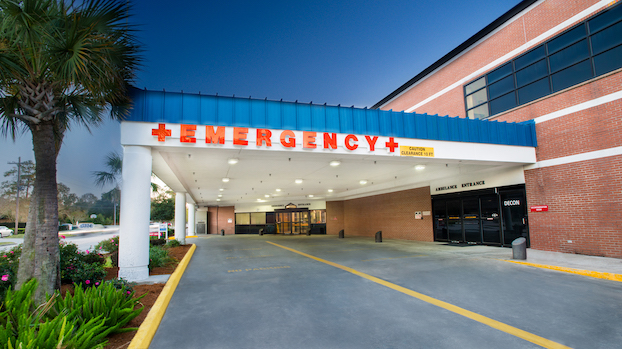Hospital CEO: COVID-19 severity ‘not a hoax’
Published 5:41 pm Thursday, August 19, 2021
West Calcasieu Cameron Hospital sounded a clear alarm Thursday, announcing the COVID-19 surge has reached a critical level due to a lack of bed availability and staffing requirements, not only at WCCH but also throughout the region. The majority of the WCCH COVID patients hospitalized were not vaccinated. When vaccinated patients contract the virus, the illness has been less severe, according to WCCH officials and physicians.
“Social media posts have said this virus is a hoax,” said WCCH CEO Janie Fruge. “This is not a hoax.”
“The fact that 90 percent of the COVID patients, fighting for their lives in this hospital right now are unvaccinated supports how effective this vaccine is,” said Dr. Kelly Fuqua, family medicine physician.
Fruge said the mission of WCCH is first to keep the community healthy. Secondly, to take care of people when they are ill or require medical care. But the last 18 months have been challenging because of the COVID surge.
“The point I would like to make is that folks who are vaccinated tend to have a less severe case with the Delta variant, and therefore will not require hospital care, but a certain number of them will,” said Dr. Ben Darby, Obstetrics and Gynecology Specialist. “Generally, if persons vaccinate and they contract COVID, they are not going to be as ill, and therefore not require as many medical resources. That’s why we’re pleading with people in this community to consider getting vaccinated.”
COVID cases are surging throughout the state while the health care community continues to handle non-COVID related medical needs and emergencies.
“If a patient requires a service we do not provide, we may be unable to find a hospital that is able to accept the patient due to capacity issues across our state and neighboring states,” Fruge said.
Fuqua said hospitalizations and deaths receive the most focus, but the virus affects the community in even more ways — ways the vaccine might have prevented. She shared actual cases.
“It’s the 16-year-old student who had to sit out softball season last year because of lingering effects from their COVID infection,” Dr. Fuqua said. “It’s the 52-year-old normally healthy woman who suffered a pulmonary embolism six months ago, due to her COVID, and still can’t walk up a flight of stairs. It’s the 32-year-old single mom still so wiped out four weeks later, she cannot go to work or to enjoy playing with her children.”
Fuqua said it’s OK to have a change of mind about vaccination, even and especially those who said they would never be vaccinated.
“We know so much more now,” Fuqua said. “Choosing vaccination does not mean you’re endorsing any political party. It does not mean you agree with whatever’s happening in Washington or Baton Rouge. I can tell you the virus does not care who you voted for.”
Hospitalist Dr. Ashley Mullins, Hospitalist said she has tried different medications including those based on new studies.
“We just haven’t seen one yet that has been really effective,” she said. “What we have seen is that the patients that are coming in and getting clinically ill are not vaccinated.”
Ambulances are being delayed because patients are waiting on ambulance stretchers until beds become available in the emergency department where WCCH is holding COVID and non-COVID patients for extended periods of time because of lack of beds in ICU.
Chief Nursing Officer Robbin Odom represented frontline workers who continue to do their jobs despite the challenges of this surge and other disasters.
“Let me give you a glimpse of what we were looking at when we walked in the doors this morning,” Odom said. “We had 35 COVID patients. Twelve are hospitalized in our ICU, which is our capacity. Thirty-three of the 35 are not vaccinated, which is 94 percent of the population.”
WCCH has a 12-bed ICU and is currently treating 35 cases. It is noteworthy that the average of unvaccinated COVID hospitalizations throughout the state is at 90 percent, based on data from hospitals of all sizes.
The Delta variant is affecting younger age groups with the majority of new cases being those patients aged 18 to 40, according to Odom.
“Our situation feels bleak at times,” she said, “but we never lose hope. The team will see us through this with the help of the community.”






